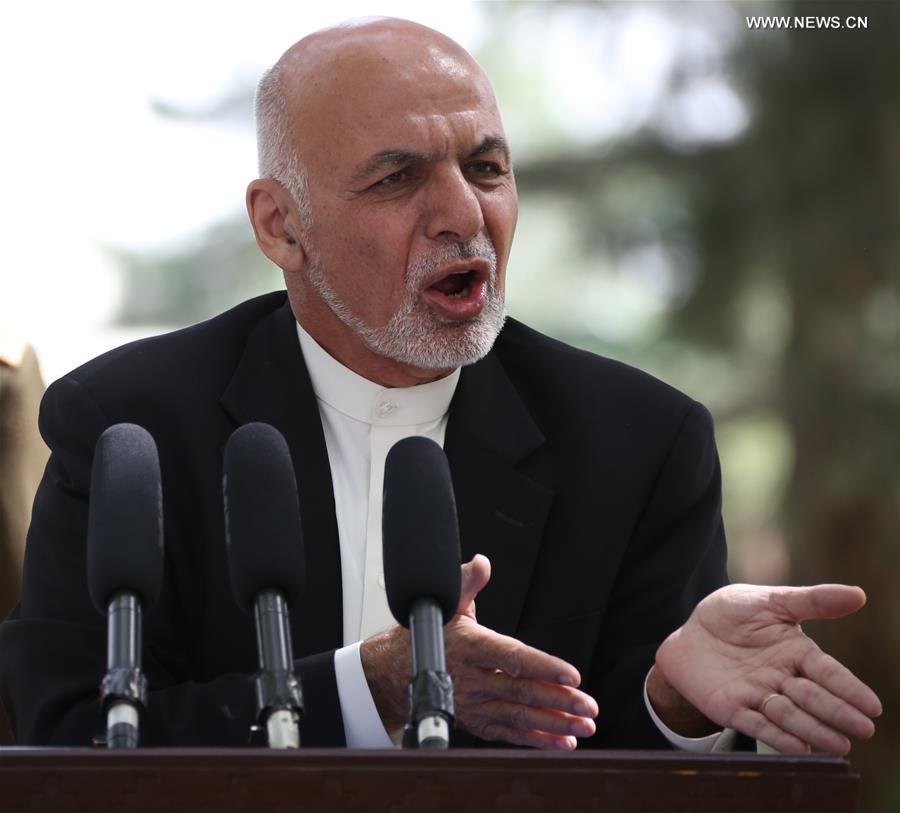New geopolitics of Afghanistan
- By Mohsen Shariatinia
 0 Comment(s)
0 Comment(s) Print
Print E-mail China.org.cn, September 13, 2018
E-mail China.org.cn, September 13, 2018

A recent flurry of activity provides important signs of geopolitical changes in the Afghanistan crisis. Changes in the positions of the key players and in their attitudes to war and peace are the drivers of geopolitical change.
Last week, U.S. Defense Secretary James Mattis made a surprise visit to Afghanistan to discuss progress on peace talks with the Taliban. Russia recently invited 12 countries, as well as the Taliban, to Moscow for peace talks. These had been scheduled for next month. However, since Afghanistan wanted more time to forage a unified position, Russia was forced to postpone the meeting.
Meanwhile, in a reversal of a longstanding policy, American diplomats held face-to-face talks with Taliban representatives in Qatar last month.
The other players involved in this crisis have also increased their contacts with the Taliban in recent years and have made greater attempts to influence the peace process. The Afghan government has also increased its endeavors to reach an understanding with the Taliban.
After nearly two decades of low-intensity warfare, it has become clear that no party involved is able to achieve a complete military victory. The Taliban is still present as a deciding force in Afghanistan and controls parts of the country. Therefore, most key players on the other side have changed their conventional attitude to the group and now consider it "a part of the solution."
Despite these promising developments, stable peace in Afghanistan looks likely to be a long-term process requiring complicated, reversible, and fragile negotiations.
Numerous players at domestic, regional and international levels influence the Afghan crisis. Domestically, the various factions inside the country have different attitudes to the peace process. Some of them consider negotiations with the Taliban to be futile.
Regionally, there are significant differences between the attitudes and interests of the influential players. On the broader international level also, Russia and the United States have differing attitudes to this crisis. Moreover, their strategic rivalry in the international system probably affects their policies regarding this crisis, too.
Should this rivalry extend to within Afghanistan itself, the geopolitics of this crisis and the prospect of a stable peace will become much more complicated than they are at present.
Looking at the big picture, we can observe that the growing process of power transition in the international system is changing both the conventional balance of power between the players and the rules shaping the interactions between governments.
Historically, such structural changes influence the geopolitics of Afghanistan. During the final years of the Cold War, Afghanistan became the most important arena of strategic rivalry between the two superpowers in the 1980s. Now, there are new forces emerging during the systemic change that cannot be ignored.
The most important challenge in realizing a stable peace in Afghanistan is in shaping a win-win situation between a diverse spectrum of players with certain common but also differing attitudes and interests.
During the past four decades, the dominant paradigm in this crisis has been win-lose games. In this framework, one group of players has tried to create some sort of hegemony-based stability through maximizing their own interests and ignoring those of other groups. Failure of these attempts and continuation of the crisis show the futility of proceeding on this course.
Shaping a win-win situation is possible only if the legitimate concerns of all parties are considered. Furthermore, Afghanistan must be defined as a geo-economy of peace, ending the reality that, in recent decades, this country has been mainly an arena for zero-sum geopolitical rivalries.
However, Afghanistan has historically been one of the important centers of the Silk Road and it can regain this role and serve as one of the centers for cooperation and for promotion of common interests in the political economy of Eurasia if enduring stability is established.
In addition, the links between terrorism and the illegal drug trade must be broken on the one hand, and a new kind of political economy mainly dependent on national incomes and resources instead of foreign aid, must be shaped on the other.
These changes in the political economy of Afghanistan can take place if the influential players, especially its neighboring countries, consider economic stability and the growth of Afghanistan an opportunity and not a threat and find common interests in its continued stability.
If the Afghan economy is intertwined with the economies of its neighbors, and some kind of regional consensus for cooperation with Afghanistan and for promotion of common interests takes shape, then much can be achieved in ending one of the longest wars in recent history.
Mohsen Shariatinia is an assistant professor of regional studies at Shahid Beheshti University in Tehran.
Opinion articles reflect the views of their authors only, not necessarily those of China.org.cn.






Go to Forum >>0 Comment(s)